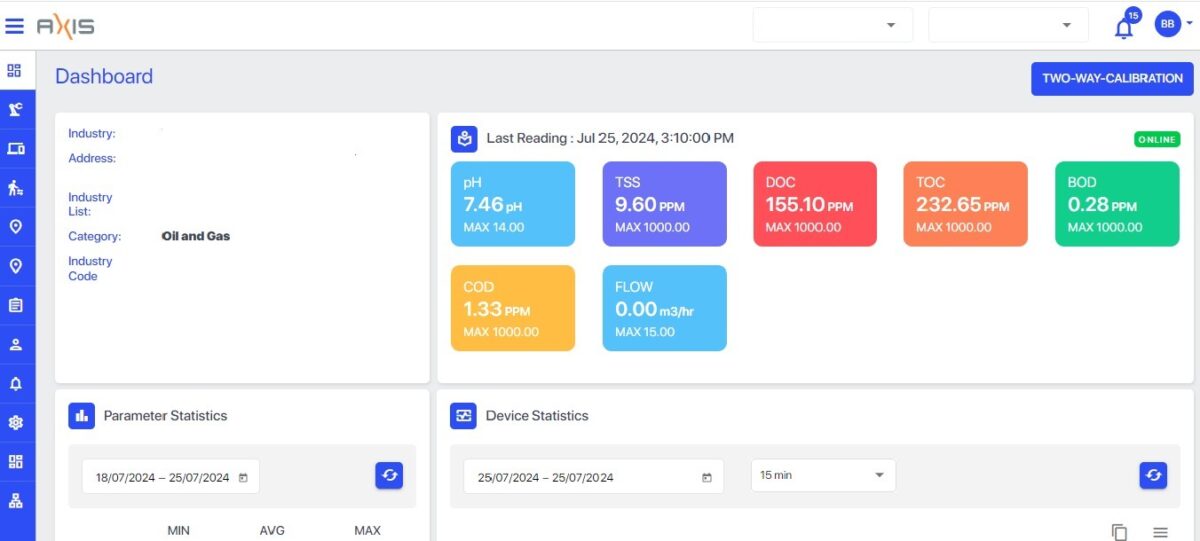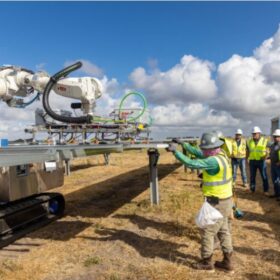Energy operations are at the forefront of global innovation, crucial for achieving sustainability, economic growth, and technological advancement. In the modern era, Artificial Intelligence (AI) and Data Analytics are revolutionizing how energy is generated, distributed, and consumed, offering solutions to long-standing challenges. With governments worldwide, particularly in India, adopting proactive measures, these technologies are catalyzing the transition toward more efficient and sustainable energy systems. This article explores the importance of AI and Data Analytics in energy operations, emphasizing Indian and global initiatives and future trends.
AI and Data Analytics: A paradigm shift in energy operations
AI and Data Analytics are transforming energy operations by introducing capabilities that were once unimaginable. These technologies provide actionable insights, automate processes, and enable real-time decision-making, making energy systems smarter and more resilient.
· Smart energy management: AI and Data Analytics optimize energy management by predicting demand, automating energy distribution, and balancing grid loads. For instance, smart grids powered by AI dynamically adjust energy flows to ensure stability and prevent outages.
· Predictive maintenance: Energy assets, from wind turbines to pipelines, benefit from predictive maintenance powered by AI. By analyzing historical and real-time data, AI models predict equipment failures, allowing timely repairs and reducing downtime.
· Renewable energy integration: The intermittent nature of renewable energy sources like solar and wind presents challenges. AI-driven forecasting models use weather data to predict energy generation, ensuring smooth integration into the grid and efficient storage.
· Sustainability and carbon emission reduction: AI-powered tools help monitor and reduce emissions by optimizing energy consumption and automating compliance with environmental regulations. This ensures companies align with global climate goals.
Government Initiatives in India
India is at the forefront of adopting AI and Data Analytics to modernize its energy sector. The government’s initiatives underscore the nation’s commitment to leveraging technology for achieving energy security and sustainability.
· National Smart Grid Mission (NSGM): The NSGM aims to transform India’s aging electricity grid into a modern, intelligent infrastructure. AI and Data Analytics play a pivotal role in ensuring real-time monitoring, demand forecasting, and efficient energy distribution. The mission promotes smart metering systems that use data analytics to reduce energy theft and enhance billing accuracy.
· UDAY Scheme: Under the Ujwal DISCOM Assurance Yojana (UDAY), AI-driven tools are deployed to monitor the financial and operational health of electricity distribution companies (DISCOMs). These tools analyze energy losses, predict power outages, and provide actionable recommendations to improve efficiency.
· Energy Efficiency Initiatives by EESL: The Energy Efficiency Services Limited (EESL) uses AI and Data Analytics to promote energy-efficient technologies. Programs like the UJALA scheme for LED distribution leverage data to track usage patterns and ensure optimal distribution.
· National AI Strategy (NITI Aayog): India’s National Strategy for Artificial Intelligence, developed by NITI Aayog, identifies energy as a priority sector. It emphasizes AI-driven solutions for renewable energy integration, grid optimization, and demand-supply matching. For instance, pilot projects in states like Gujarat and Karnataka use AI to forecast solar and wind energy generation.
· Digital India Initiative: The Digital India Initiative promotes the adoption of digital technologies, including AI and Data Analytics, across sectors. Energy companies under this initiative are modernizing their operations by implementing AI-driven solutions for asset monitoring and grid management.
Global government initiatives
While India is making significant strides, global governments are also prioritizing AI and Data Analytics to transform their energy sectors.
· United States: The U.S. Department of Energy (DOE) funds projects that use AI to optimize grid operations and integrate renewable energy. For example, the Pacific Northwest National Laboratory leverages AI to forecast electricity demand and ensure grid stability.
· European Union: The European Green Deal promotes AI and Big Data to achieve carbon neutrality by 2050. AI tools are central to projects involving renewable energy forecasting, energy storage optimization, and reducing industrial emissions.
· UAE: The UAE’s Mohammed bin Rashid Al Maktoum Solar Park is one of the world’s largest solar projects. It uses AI and Data Analytics to monitor energy production, optimize storage, and ensure efficient distribution.
How AI and Data Analytics power energy operations
· Real-time monitoring and automation: AI systems monitor energy assets in real time, identifying anomalies and enabling automated responses. This reduces human intervention, lowers operational costs, and enhances system reliability.
· Demand forecasting: Accurate demand forecasting is critical for energy planning. AI models analyze historical consumption patterns, weather conditions, and market trends to predict energy needs, ensuring efficient resource allocation.
· Energy trading: AI-powered platforms optimize energy trading by analyzing market trends and consumer demand. Blockchain integration ensures secure and transparent transactions.
· Energy storage optimization: AI optimizes energy storage systems, such as batteries, by predicting energy demand and supply fluctuations. This ensures renewable energy is stored efficiently and used during peak demand periods.
Forecasted trends in AI and Data Analytics for energy
The energy sector is evolving rapidly, and AI and Data Analytics are driving this transformation. Key trends forecasted for the future include:
· Expansion of decentralized energy systems: AI will enable the growth of decentralized energy systems, including microgrids and community-based renewable energy projects. These systems allow localized energy generation and consumption, reducing dependency on central grids.
· Autonomous energy operations: AI will lead to fully autonomous energy systems capable of managing production, distribution, and storage without human intervention. These systems will improve efficiency and reduce operational costs.
· AI-driven carbon capture: Carbon capture and storage (CCS) technologies will increasingly rely on AI to optimize processes, reduce costs, and improve environmental impact.
· Smart city integration: AI will play a central role in smart city projects, optimizing energy usage in public infrastructure, transportation, and residential areas.
Challenges and the way forward
Despite its transformative potential, the adoption of AI and Data Analytics in energy operations faces challenges.
· Data privacy and security: Energy operations involve sensitive data that must be protected. Robust data governance policies and cybersecurity measures are essential.
· High costs: Implementing AI systems requires significant investment. Government subsidies and public-private partnerships can help mitigate these costs.
· Skill gaps: The energy sector lacks professionals skilled in AI and Data Analytics. Upskilling programs and industry-academic collaborations can address this gap.
· Legacy infrastructure: Integrating AI with legacy systems is challenging. Gradual modernization and scalable solutions are necessary for a smooth transition.
Conclusion
AI and Data Analytics are not just tools but catalysts for transforming energy operations. They address critical challenges like efficiency, sustainability, and resource optimization, paving the way for a future defined by clean and intelligent energy systems. With proactive initiatives by governments in India and globally, coupled with rapid technological advancements, the energy sector is poised for a revolutionary shift. The adoption of AI and Data Analytics is not just an option—it is imperative for building a sustainable and resilient energy ecosystem.
The views and opinions expressed in this article are the author’s own, and do not necessarily reflect those held by pv magazine.
This content is protected by copyright and may not be reused. If you want to cooperate with us and would like to reuse some of our content, please contact: editors@pv-magazine.com.








Visit us Magister Akuntansi
What’s data preprocessing?